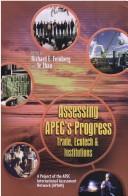| Listing 1 - 10 of 12 | << page >> |
Sort by
|
Multi
ISBN: 9789811608438 9789811608421 9789811608445 9789811608452 Year: 2023 Publisher: Singapore Springer Nature
Abstract | Keywords | Export | Availability | Bookmark
 Loading...
Loading...Choose an application
- Reference Manager
- EndNote
- RefWorks (Direct export to RefWorks)
This thesis proposes new approaches for modelling contacting interactions and electrostatic interactions between microparticles in the framework of the discrete element method and presents a systematic investigation on the agglomeration, migration and deposition of microparticles in presence of electrostatic and flow fields. It reports an exponential-form scaling for the size distribution of early-stage agglomerates in homogeneous isotropic turbulence and formulate the agglomeration and deagglomeration rates. The evolution of spherical clouds of charged particles that migrate under the action of an external electrostatic field is then investigated. Scaling laws of cloud radius and particle number density are obtained by solving a continuum convection equation. Finally, it investigates the deposition of charged particles on a flat plane and fibers. A dimensionless adhesion parameter is constructed to predict the structure of deposits. The temporal evolution of the deposit structure, particle capture efficiency, and the pressure drop are displayed with varying values of Coulomb repulsion and adhesion magnitudes. .
Quantum mechanics. Quantumfield theory --- Fluid mechanics --- Statistical physics --- Solid state physics --- Matter physics --- General ecology and biosociology --- Gases handling. Fluids handling --- Environmental protection. Environmental technology --- EMI (electromagnetic interference) --- materie (fysica) --- environment --- quantummechanica --- milieutechnologie --- ingenieurswetenschappen --- fysica --- vloeistoffen --- Electrostatics. --- Nanoparticle dynamics.
Book
ISBN: 9783662473313 3662473305 9783662473306 3662473313 Year: 2015 Publisher: Berlin, Heidelberg : Springer Berlin Heidelberg : Imprint: Springer,
Abstract | Keywords | Export | Availability | Bookmark
 Loading...
Loading...Choose an application
- Reference Manager
- EndNote
- RefWorks (Direct export to RefWorks)
This book discusses in detail the planning, design, construction and management of hydraulic structures, covering dams, spillways, tunnels, cut slopes, sluices, water intake and measuring works, ship locks and lifts, as well as fish ways. Particular attention is paid to considerations concerning the environment, hydrology, geology and materials etc. in the planning and design of hydraulic projects. It also considers the type selection, profile configuration, stress/stability calibration and engineering countermeasures, flood releasing arrangements and scouring protection, operation and maintenance etc. for a variety of specific hydraulic structures. The book is primarily intended for engineers, undergraduate and graduate students in the field of civil and hydraulic engineering who are faced with the challenges of extending our understanding of hydraulic structures ranging from traditional to groundbreaking, as well as designing, constructing and managing safe, durable hydraulic structures that are economical and environmentally friendly.
Engineering. --- Geoengineering, Foundations, Hydraulics. --- Geotechnical Engineering & Applied Earth Sciences. --- Hydrology/Water Resources. --- Hydraulic engineering. --- Ingénierie --- Technologie hydraulique --- Civil & Environmental Engineering --- Mechanical Engineering --- Engineering & Applied Sciences --- Hydraulic Engineering --- Civil Engineering --- Hydraulic structures. --- Hydraulic structures --- Design and construction. --- Construction --- Hydrology. --- Geotechnical engineering. --- Engineering geology. --- Engineering --- Foundations. --- Hydraulics. --- Geology. --- Hydraulic engineering --- Structural engineering --- Engineering, Hydraulic --- Fluid mechanics --- Hydraulics --- Shore protection --- Engineering—Geology. --- Aquatic sciences --- Earth sciences --- Hydrography --- Water --- Engineering, Geotechnical --- Geotechnics --- Geotechnology --- Engineering geology --- Flow of water --- Jets --- Architecture --- Building --- Underground construction --- Caissons --- Earthwork --- Masonry --- Soil consolidation --- Soil mechanics --- Walls --- Civil engineering --- Geology, Economic --- Flow --- Distribution --- Details --- Geology
Book
ISBN: 9811081352 9811081344 Year: 2019 Publisher: Singapore : Springer Singapore : Imprint: Springer,
Abstract | Keywords | Export | Availability | Bookmark
 Loading...
Loading...Choose an application
- Reference Manager
- EndNote
- RefWorks (Direct export to RefWorks)
This book presents recent research into developing and applying computational tools to estimate the performance and safety of hydraulic structures from the planning and construction stage to the service period. Based on the results of a close collaboration between the author and his colleagues, friends, students and field engineers, it shows how to achieve a good correlation between numerical computation and the actual in situ behavior of hydraulic structures. The book’s heuristic and visualized style disseminates the philosophy and road map as well as the findings of the research. The chapters reflect the various aspects of the three typical and practical methods (the finite element method, the block element method, the composite element method) that the author has been working on and made essential contributions to since the 1980s. This book is an advanced continuation of Hydraulic Structures by the same author, published by Springer in 2015.
Hydraulic structures --- Design and construction. --- Hydraulic engineering. --- Computer science. --- Mechanics. --- Mechanics, Applied. --- Geoengineering, Foundations, Hydraulics. --- Computational Science and Engineering. --- Solid Mechanics. --- Engineering, Hydraulic --- Engineering --- Fluid mechanics --- Hydraulics --- Shore protection --- Applied mechanics --- Engineering, Mechanical --- Engineering mathematics --- Classical mechanics --- Newtonian mechanics --- Physics --- Dynamics --- Quantum theory --- Informatics --- Science --- Engineering geology. --- Engineering—Geology. --- Foundations. --- Hydraulics. --- Computer mathematics. --- Architecture --- Building --- Structural engineering --- Underground construction --- Caissons --- Earthwork --- Masonry --- Soil consolidation --- Soil mechanics --- Walls --- Flow of water --- Water --- Hydraulic engineering --- Jets --- Civil engineering --- Geology, Economic --- Computer mathematics --- Electronic data processing --- Mathematics --- Details --- Flow --- Distribution --- Geology --- Computer science --- Mathematics.
Multi
ISBN: 9789811081354 Year: 2019 Publisher: Singapore Springer Singapore, Imprint: Springer
Abstract | Keywords | Export | Availability | Bookmark
 Loading...
Loading...Choose an application
- Reference Manager
- EndNote
- RefWorks (Direct export to RefWorks)
This book presents recent research into developing and applying computational tools to estimate the performance and safety of hydraulic structures from the planning and construction stage to the service period. Based on the results of a close collaboration between the author and his colleagues, friends, students and field engineers, it shows how to achieve a good correlation between numerical computation and the actual in situ behavior of hydraulic structures. The book’s heuristic and visualized style disseminates the philosophy and road map as well as the findings of the research. The chapters reflect the various aspects of the three typical and practical methods (the finite element method, the block element method, the composite element method) that the author has been working on and made essential contributions to since the 1980s. This book is an advanced continuation of Hydraulic Structures by the same author, published by Springer in 2015.
Classical mechanics. Field theory --- Solid state physics --- Meteorology. Climatology --- Hydraulic energy --- Applied physical engineering --- Computer science --- Structural parts and elements of building --- composieten --- opwarming (milieu) --- funderingen --- duurzame energie --- toegepaste mechanica --- computers --- informatica --- informaticaonderzoek --- mechanica --- computerkunde --- hydraulica --- klimaatverandering
Multi
ISBN: 9783662473313 9783662473320 9783662473306 9783662515921 Year: 2015 Publisher: Berlin, Heidelberg Springer
Abstract | Keywords | Export | Availability | Bookmark
 Loading...
Loading...Choose an application
- Reference Manager
- EndNote
- RefWorks (Direct export to RefWorks)
This book discusses in detail the planning, design, construction and management of hydraulic structures, covering dams, spillways, tunnels, cut slopes, sluices, water intake and measuring works, ship locks and lifts, as well as fish ways. Particular attention is paid to considerations concerning the environment, hydrology, geology and materials etc. in the planning and design of hydraulic projects. It also considers the type selection, profile configuration, stress/stability calibration and engineering countermeasures, flood releasing arrangements and scouring protection, operation and mainte.
Hydrosphere --- Meteorology. Climatology --- Hydraulic energy --- Mining industry --- Structural parts and elements of building --- hydrologie --- opwarming (milieu) --- funderingen --- duurzame energie --- mijnbouw --- geologie --- hydraulica --- klimaatverandering --- Engineering --- Hydraulic engineering
Book
ISBN: 9789811081354 Year: 2019 Publisher: Singapore Springer Singapore :Imprint: Springer
Abstract | Keywords | Export | Availability | Bookmark
 Loading...
Loading...Choose an application
- Reference Manager
- EndNote
- RefWorks (Direct export to RefWorks)
Classical mechanics. Field theory --- Solid state physics --- Meteorology. Climatology --- Hydraulic energy --- Applied physical engineering --- Computer science --- Structural parts and elements of building --- composieten --- opwarming (milieu) --- funderingen --- duurzame energie --- toegepaste mechanica --- computers --- informatica --- informaticaonderzoek --- mechanica --- computerkunde --- hydraulica --- klimaatverandering

ISBN: 1575863707 Year: 2002 Publisher: Stanford (Calif.): CSLI
Abstract | Keywords | Export | Availability | Bookmark
 Loading...
Loading...Choose an application
- Reference Manager
- EndNote
- RefWorks (Direct export to RefWorks)
Book

ISBN: 9789812305008 Year: 2001 Publisher: Singapore
Abstract | Keywords | Export | Availability | Bookmark
 Loading...
Loading...Choose an application
- Reference Manager
- EndNote
- RefWorks (Direct export to RefWorks)
Book

ISBN: 9789812305022 Year: 2004 Publisher: Singapore
Abstract | Keywords | Export | Availability | Bookmark
 Loading...
Loading...Choose an application
- Reference Manager
- EndNote
- RefWorks (Direct export to RefWorks)


ISBN: 9789812305008 9789812301437 Year: 2001 Publisher: Singapore ISEAS Publishing
Abstract | Keywords | Export | Availability | Bookmark
 Loading...
Loading...Choose an application
- Reference Manager
- EndNote
- RefWorks (Direct export to RefWorks)
| Listing 1 - 10 of 12 | << page >> |
Sort by
|

 Search
Search Feedback
Feedback About UniCat
About UniCat  Help
Help News
News